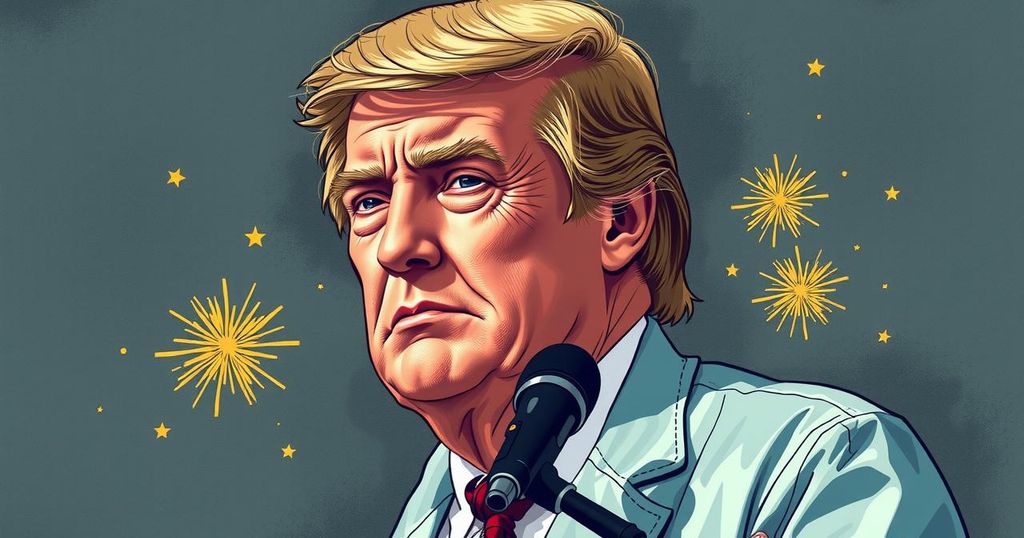World news
AFRICA, ASIA, BOSTON REVIEW, BOTSWANA, DEMOCRACY, DONALD TRUMP, ELECTION, ELECTIONS, EUROPE/ASIA, FREEDOM HOUSE, GEORGIA, JOSH LERNER, MEXICO, NICOLAS MADURO, NORTH AMERICA, OPPOSITION, PEOPLE POWERED, PHILIPPINES, POLITICS, POPULISM, SOUTH AFRICA, TRUMP, WASHINGTON,
Jamal Robinson
0 Comments
Rethinking Democracy: Why We Should Give Up on Elections
In light of the problematic nature of the electoral processes observed in 2024, it is imperative to reconsider our approach to democracy. The year revealed that elections often undermine democratic ideals, leading to oppression and volatility. Experts advocate for a reevaluation of democratic practices, urging the exploration of more participatory means of governance that empower citizens beyond mere electoral participation.
As we embark on a new year, many are inclined to set resolutions that range from personal health to improved habits. I propose an unconventional resolution: to reconsider our reliance on elections. In light of the tumultuous democratic landscape in 2024, it is vital to differentiate between elections and the essence of democracy itself. Contrary to the prevailing belief that elections inherently foster democracy, we witnessed how, instead, they often serve as instruments that undermine it.
In 2024, over 70 countries conducted elections, with over half of humanity engaged in the democratic process. Expectations were high for positive political transformations, yet the reality was starkly disheartening. Reports indicated that many elections were marred by autocratic maneuvers, resulting in violence, governmental paralysis, and public frustration. “Our obsession with elections is killing democracy,” remarked Josh Lerner of People Powered, highlighting the glaring disconnection between the electoral process and genuine democratic governance.
Freedom House revealed alarming statistics: 22 elections were characterized by the suppression of political opposition, while 16 did not provide voters with legitimate choices due to manipulative practices. Furthermore, the prevalence of violence was evident in numerous elections, with political assassinations and ethnic conflicts marking the electoral landscape in places like Mexico and India. The emergence of the “sore winner” phenomenon illustrated a troubling trend: victorious political entities leveraging their power to dismantle opposition and autonomy.
Despite some instances of change, such as incumbent losses in various nations, the overall sentiment was one of divisiveness and unrest, culminating in events like an attempted coup in South Korea. Leonora Camner, with Democracy Without Elections, argues that elections often serve to drive a wedge between communities, suggesting the need to focus on empowering citizens directly through more participatory avenues.
The discourse surrounding elections necessitates a paradigm shift toward more effective democratic engagement. As Matt Leighninger from the National Civic League suggests, we should explore alternatives like citizen assemblies, participatory budgeting, and enhancing civic engagement. This holistic approach can cultivate a sense of agency among voters, moving beyond the limited framework of electoral participation.
In sum, if 2024 provided any insight, it is that our devotion to the electoral process may obscure the path to true democracy. To foster genuine governance, we must prioritize mechanisms that empower individuals, ensuring that democracy remains a dynamic engagement rather than a mere checkbox in an election cycle.
In recent cycles, elections have been regarded as the hallmark of democratic engagement, yet they have increasingly drawn scrutiny. The events of the Year of Elections in 2024 showcased a disconnect between electoral participation and democratic ideals. Various countries experienced heightened levels of political oppression, manipulation, and violence during their electoral processes, raising questions about the validity and effectiveness of elections in truly representing the people’s will. Observers emphasize the need for a reassessment of democratic practices beyond conventional electoral frameworks.
The events of 2024 indicate that elections often fail to enhance democracy and can instead act as vehicles of oppression. The recurring themes of violence, manipulation, and disempowerment cast doubt on the efficacy of electoral processes. A shift toward more participatory democratic practices may offer a pathway to restore public trust and engagement in governance. Emphasizing the need for direct citizen involvement will be crucial to redefine democracy in more meaningful terms.
Original Source: www.vcstar.com




Post Comment